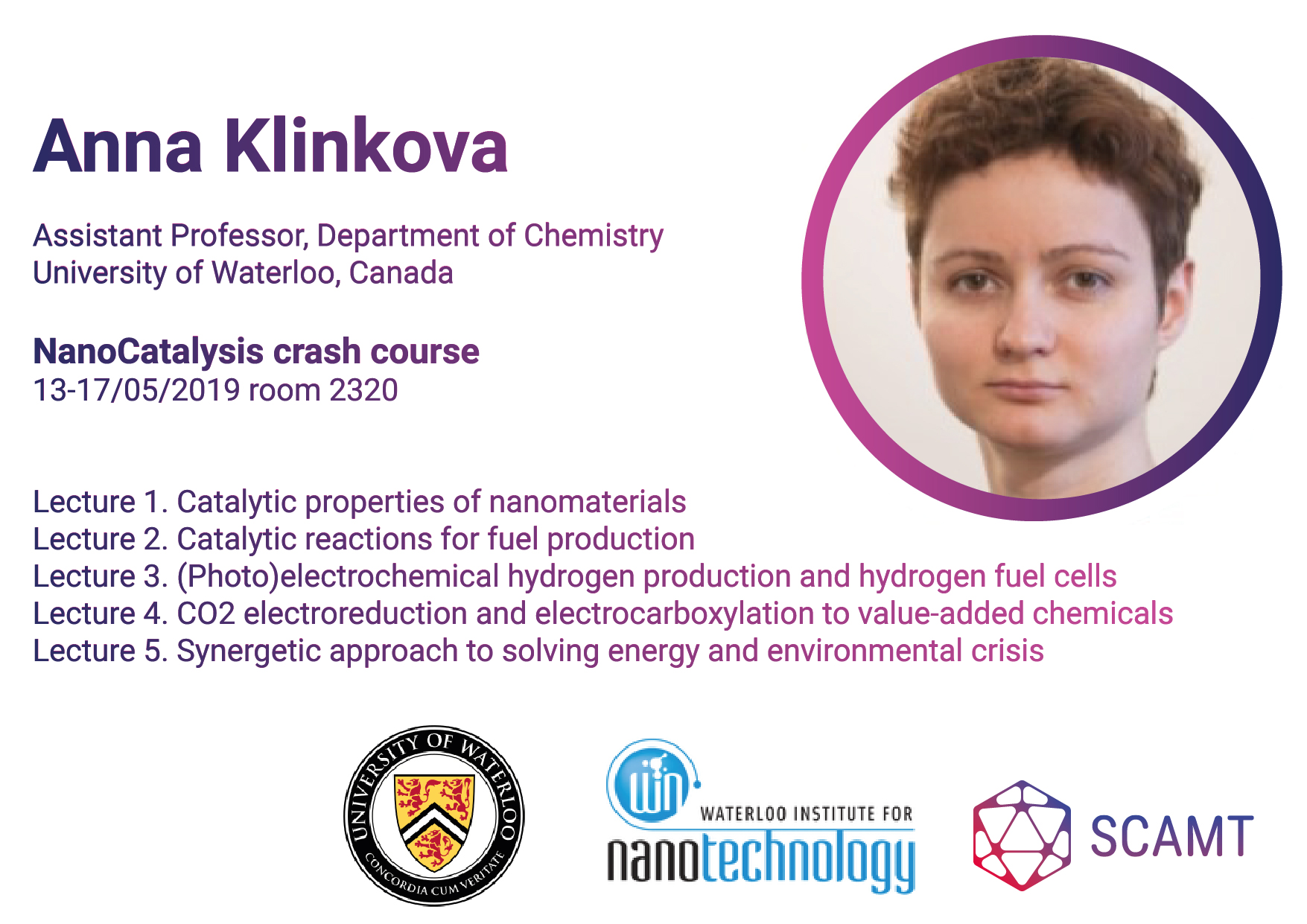13-17/05/2019 "Applied materials - NanoCatalysis for Energy: crash course" by Anna Klinkova
Anna Klinkova is a Chemistry professor at the University of Waterloo, Canada, and a member of Waterloo Institute for Nanotechnology and Interdisciplinary Centre on Climate Change. Anna Klinkova’s research is focused on developing advanced nanomaterials for applications in alternative energy and catalysis. Her goal is to gain a systematic understanding of the effects of nanoparticle shape and surface chemistry on their physicochemical properties relevant to carbon dioxide conversion into fuels and chemical feedstocks, as well as to control structural transformations of nanocatalysts under applied potentials. In addition, her research efforts are also dedicated to the elucidation of CO2 conversion mechanisms and electrolyzer design, as not only advanced catalytic materials, but a system approach to CO2 conversion is necessary to advance this sustainable technology.
NanoCatalysis crash course overview: As the global population and economic activity grow, so does worldwide energy demand. Compounding this challenge is the growing need to protect our environment by increasing energy efficiency and developing green energy sources. This course will focus on the nanotechnology and nanomaterial prospective for these global challenges. We will explore how nanoscience enables the development of transformative catalytic technologies for energy applications and overview a synergetic solution for sustainable energy future from the perspective of (photo)electrochemical hydrogen production, new generation fuel cells, electrocatalytic conversion of CO2 into fuels and feedstocks, and other catalytic technologies for fuel production. This course employ active learning platform TopHat that includes interactive course materials and allows in-class participation with students’ devices.

